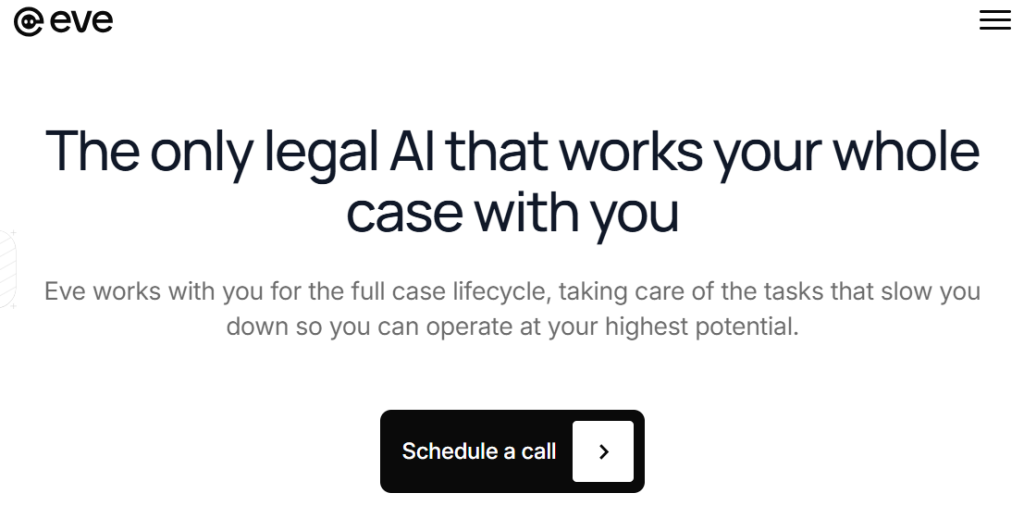
Eve, a U.S.-based AI startup, has closed an impressive $103 million Series B funding round, backed by heavyweight investors Spark Capital, Andreessen Horowitz, Lightspeed, and Menlo Ventures. This capital injection marks one of the largest Series B rounds in recent months, underscoring both the scale of Eve’s ambitions and the investor appetite for transformative AI platforms.
The company, led by Jayanth M., is positioned at the heart of a movement reshaping how AI interacts with enterprise systems, consumer products, and global infrastructure. With such a significant round, Eve is not just growing - it’s accelerating toward category leadership in a space where speed and execution are everything.
Why This Raise Stands Out
Series B is often the moment where startups shift gears from experimentation to scale. Eve’s $103M raise is not just about extending runway - it’s about seizing market share in a sector that’s rapidly consolidating.
The caliber of investors backing Eve speaks volumes. Andreessen Horowitz and Lightspeed are known for backing generational companies early, while Spark Capital and Menlo Ventures bring deep networks across SaaS, cloud infrastructure, and AI. Together, this syndicate provides Eve with both capital and strategic firepower to expand aggressively into new markets.
Beyond Capital: Building Defensible AI
AI is no longer a novelty. Every week, new players enter the field with their own large language models or task-specific AI products. What sets Eve apart - and what likely secured this massive round - is its focus on defensibility through scale, proprietary data, and infrastructure integrations.
Startups that fail to differentiate on these fronts risk being commoditized. The winners are those who can both own the data layer and embed themselves into critical workflows so deeply that switching costs become prohibitive. Eve’s roadmap appears to be aligned with this strategy, signaling a sophisticated understanding of where AI markets are headed.
A Hard-Earned Insight for Founders
One of the most overlooked truths in scaling AI companies is that investors don’t just fund technology - they fund distribution models. Even the most advanced model will struggle to gain traction if it isn’t paired with a clear and scalable go-to-market engine.
Founders often underestimate how critical it is to design their GTM motion as early as Series A. By Series B, the companies that rise above the noise are those with repeatable sales playbooks, ecosystem partnerships, and robust customer success frameworks.
Eve’s raise offers a lesson: capital is oxygen, but distribution is lifeblood. In the current climate, where enterprises are bombarded with AI pitches, differentiation increasingly comes not from the model itself but from how well you orchestrate adoption at scale. For healthtech, fintech, or any vertical-specific AI, this insight can mean the difference between being a breakout success or a quickly forgotten experiment.
Why Investors Are Betting Big
With Eve’s Series B, investors aren’t just backing another AI startup - they’re backing the potential for a platform-level company that can extend across industries. The timing is critical: enterprises are rapidly shifting from pilot projects to production-grade AI integrations, creating a market pull for scalable, reliable, and customizable solutions.
Investors like Andreessen Horowitz and Lightspeed are betting that Eve will not only ride this wave but shape it. Given their track records, their conviction is a signal to the broader ecosystem that Eve is poised to become a defining player in AI.
The Expanding AI Market
The context for this raise is a global AI boom that shows no signs of slowing. According to PwC, AI could contribute up to $15.7 trillion to the global economy by 2030, with productivity gains and consumer demand driving adoption.
Specifically, enterprise AI is one of the fastest-growing segments. Gartner estimates that by 2026, more than 80% of enterprises will have deployed generative AI APIs and models, a sharp rise from less than 5% in 2023. Cloud-native AI tools, infrastructure integrations, and verticalized AI solutions are expected to be the highest-growth categories.
The investor appetite mirrors this growth. In the first half of 2025 alone, global AI funding surpassed $35 billion, with Series B and later-stage rounds commanding the majority of capital inflows. The competition to back AI startups with clear pathways to defensibility is more intense than ever, which makes Eve’s successful raise all the more significant.
What’s Next for Eve
With $103M in new funding, Eve will likely accelerate on multiple fronts:
- Talent Acquisition – Scaling engineering, research, and GTM teams to meet demand.
- Infrastructure Expansion – Building more robust AI infrastructure to handle enterprise-scale workloads.
- Global Market Entry – Extending beyond the U.S. to capture opportunities in Europe and Asia.
- Partnership Ecosystem – Creating integrations with cloud providers, SaaS platforms, and industry-specific software.
- Product Innovation – Doubling down on differentiation through proprietary data and specialized AI applications.
If executed effectively, Eve could become one of the defining AI companies of this decade - joining the ranks of OpenAI, Anthropic, and Cohere as market-shaping leaders.
Final Take
Eve’s $103M Series B raise is more than a funding milestone - it’s a signal of where enterprise AI is heading. The next chapter for AI startups will be written not just by those who build the smartest models but by those who master scale, defensibility, and distribution.
For founders, the lesson embedded in Eve’s journey is clear: in a crowded AI landscape, your GTM strategy is as important as your technical edge. Investors know it, and now the market is rewarding those who execute on both fronts.









